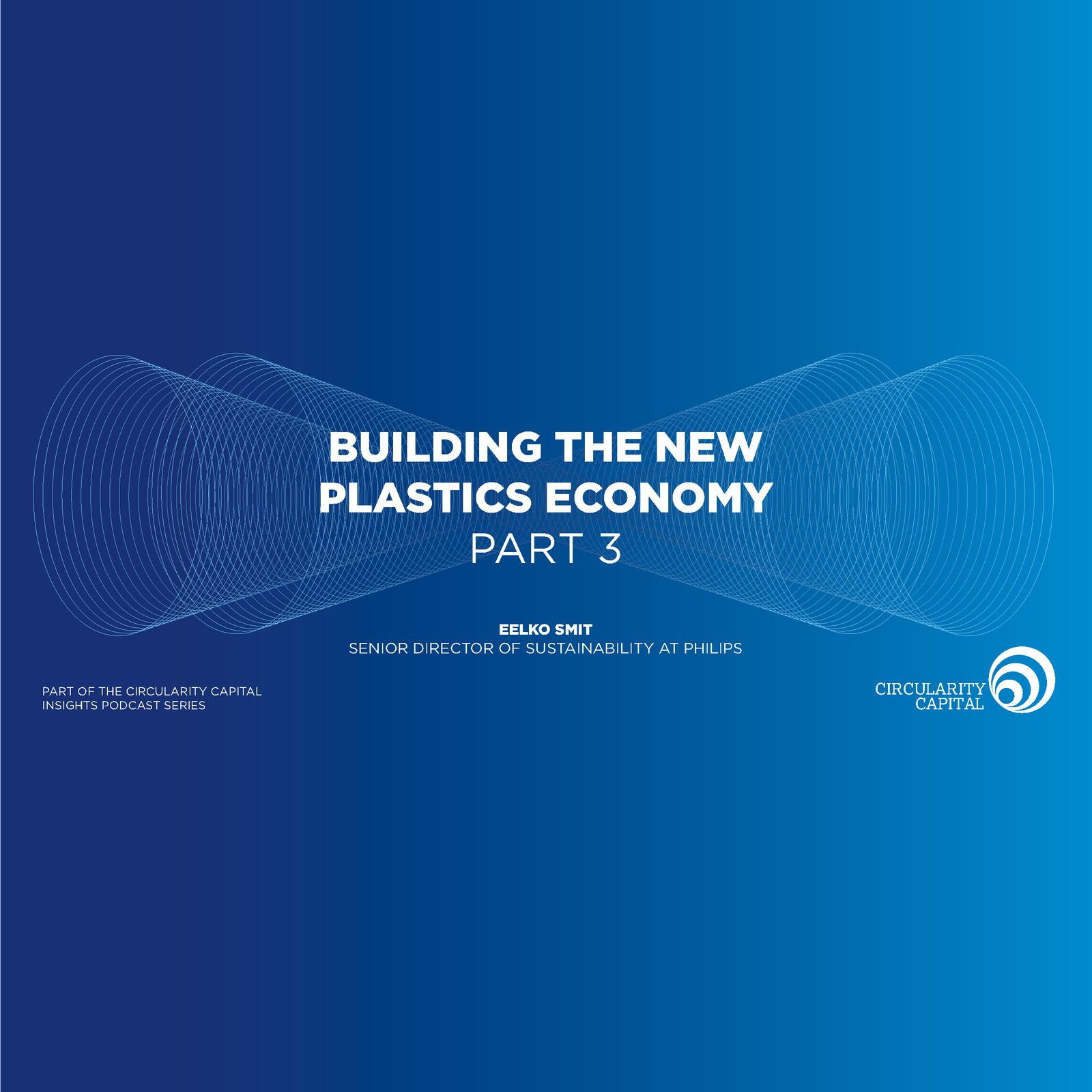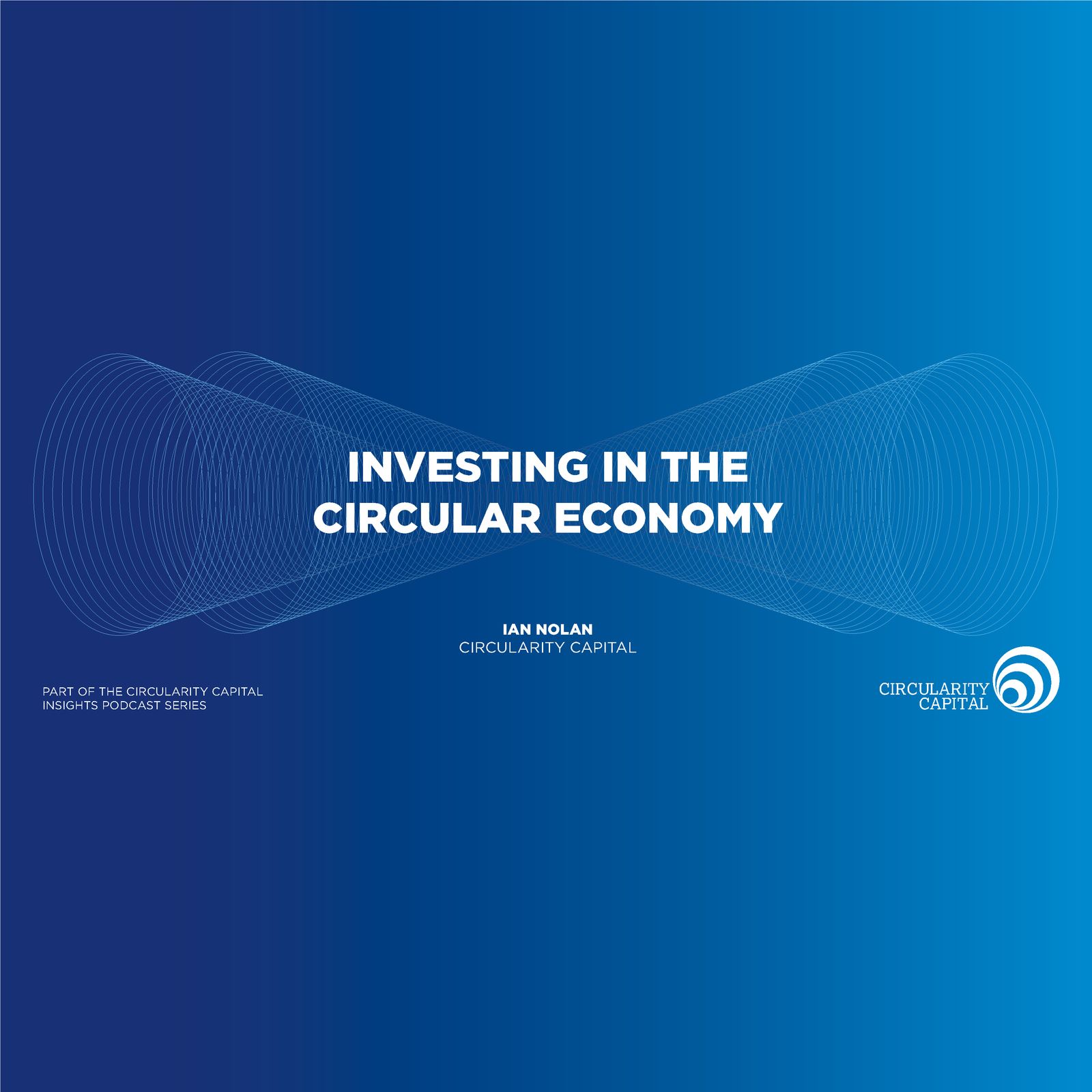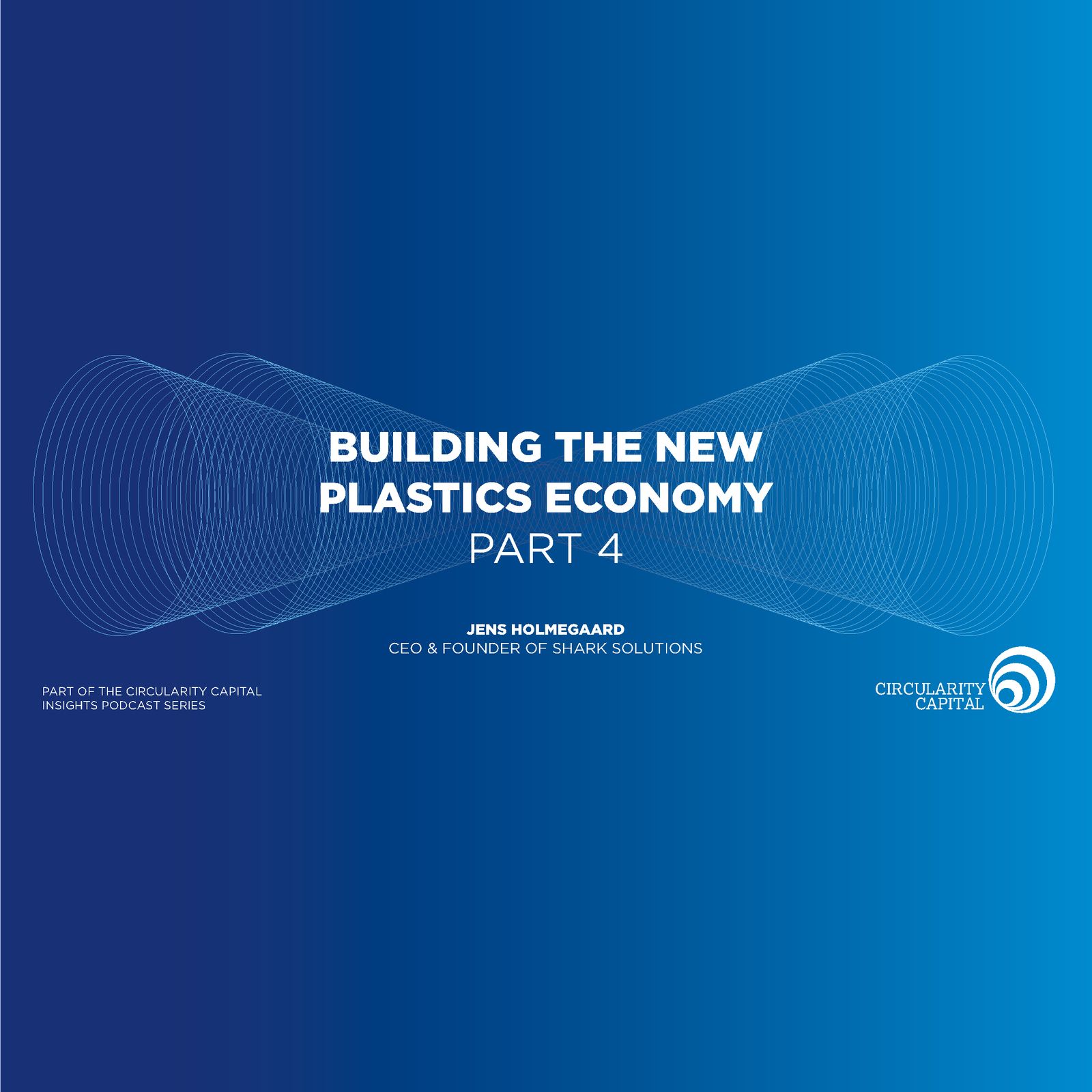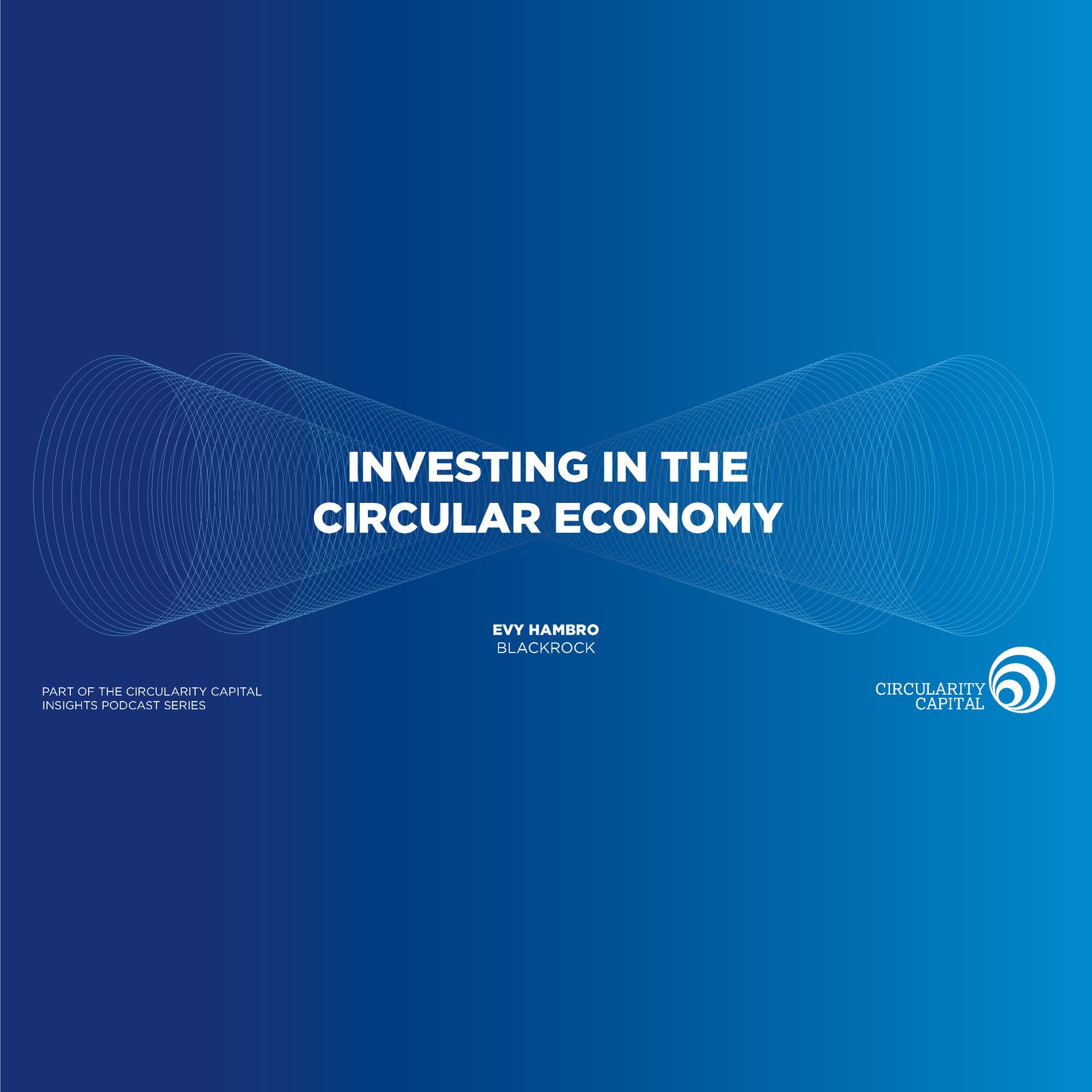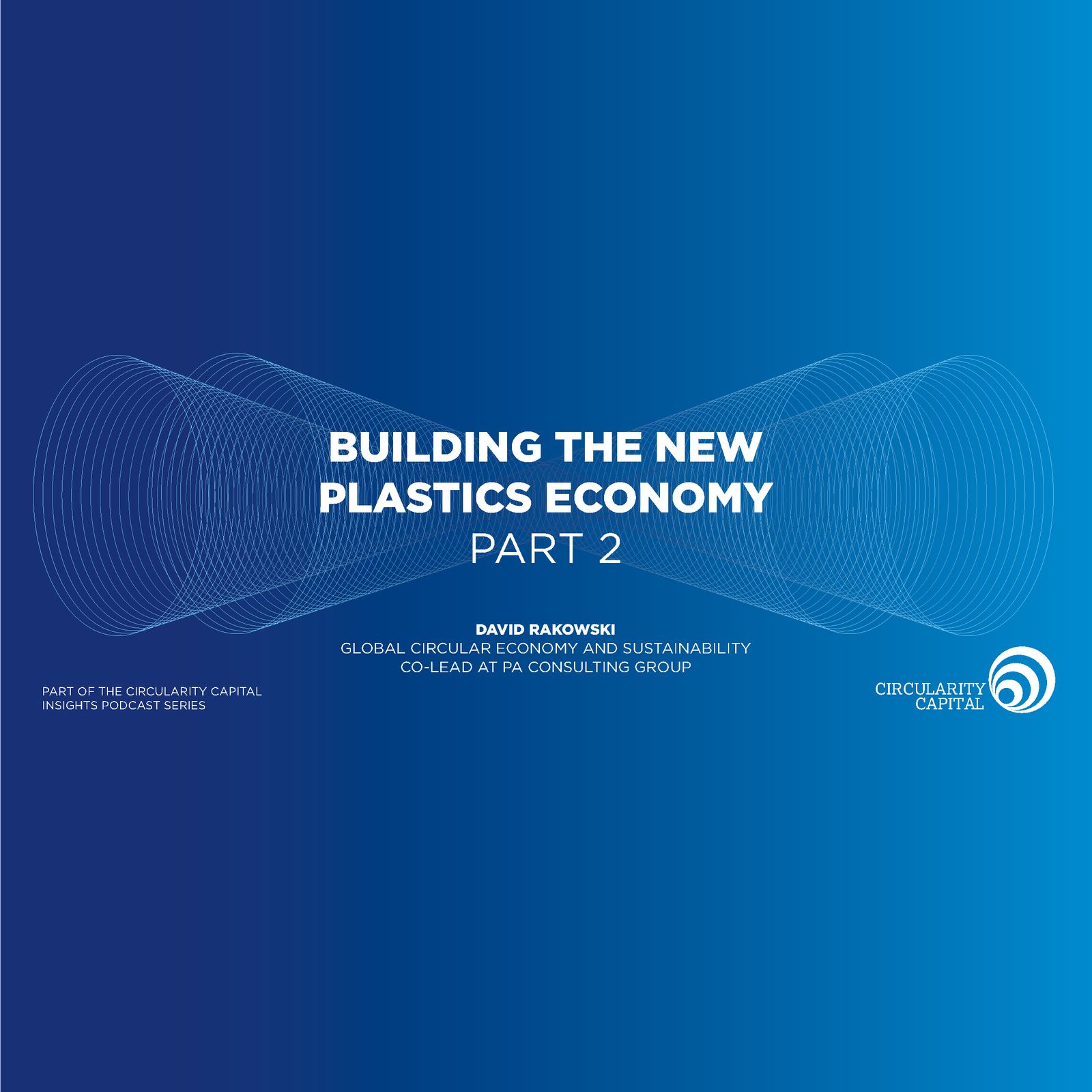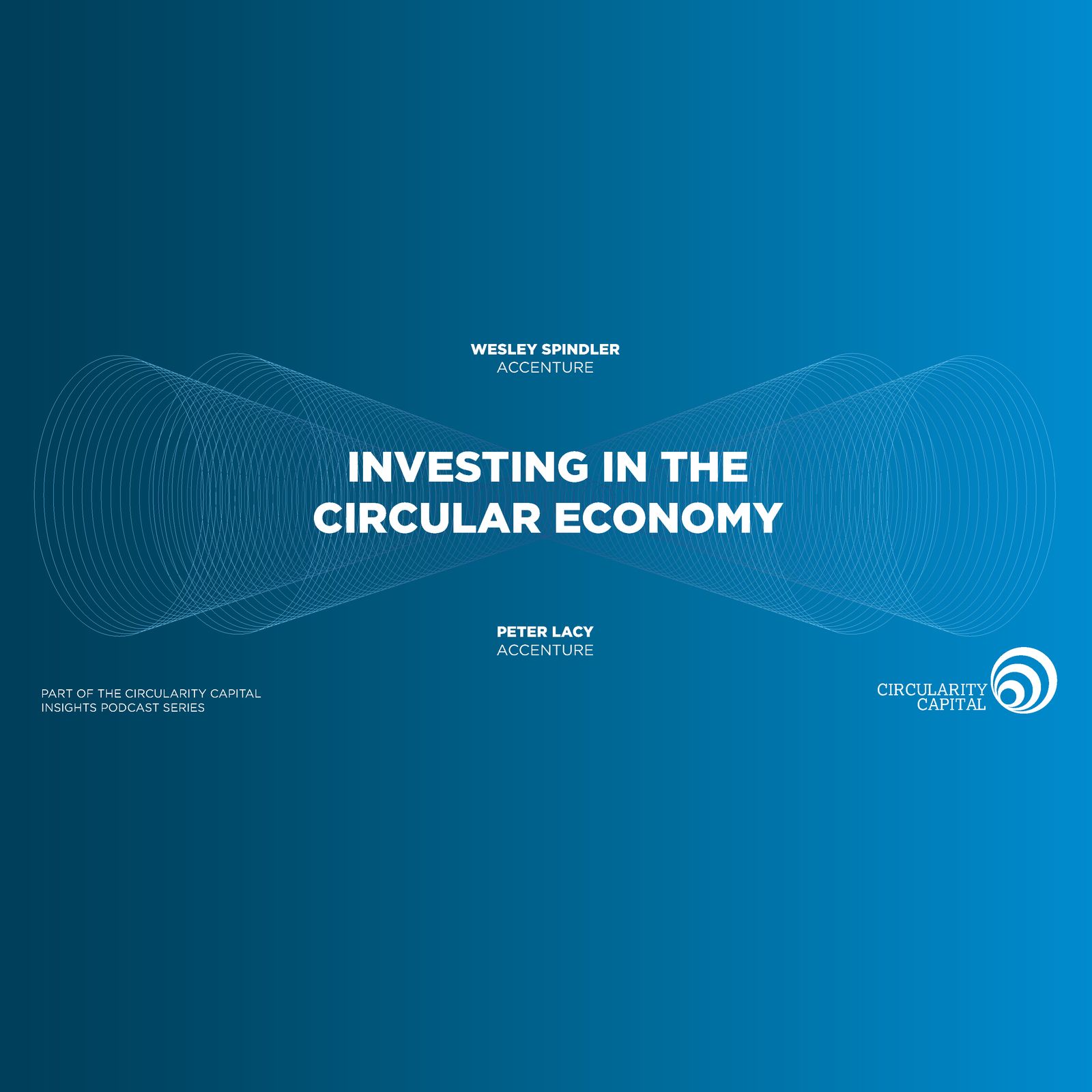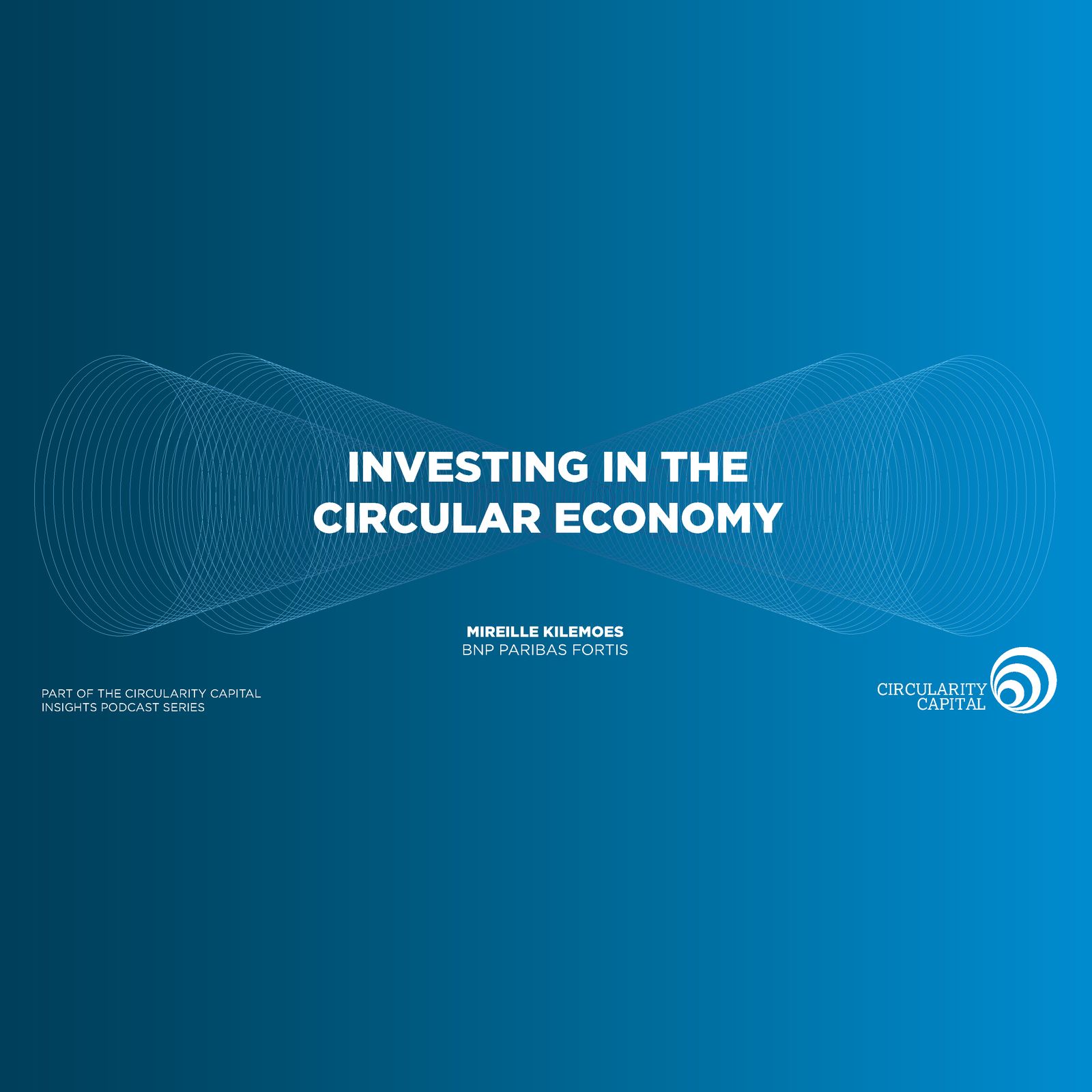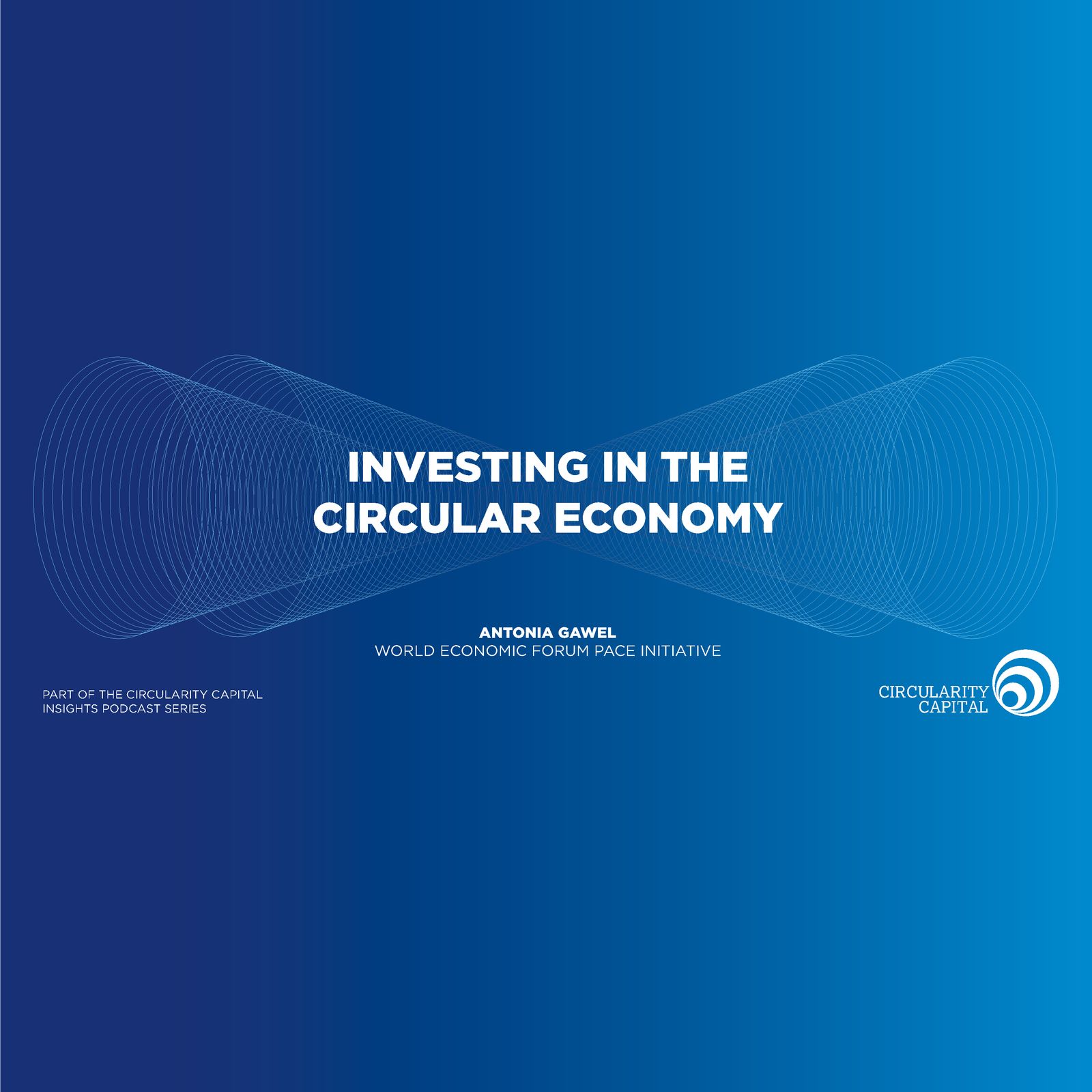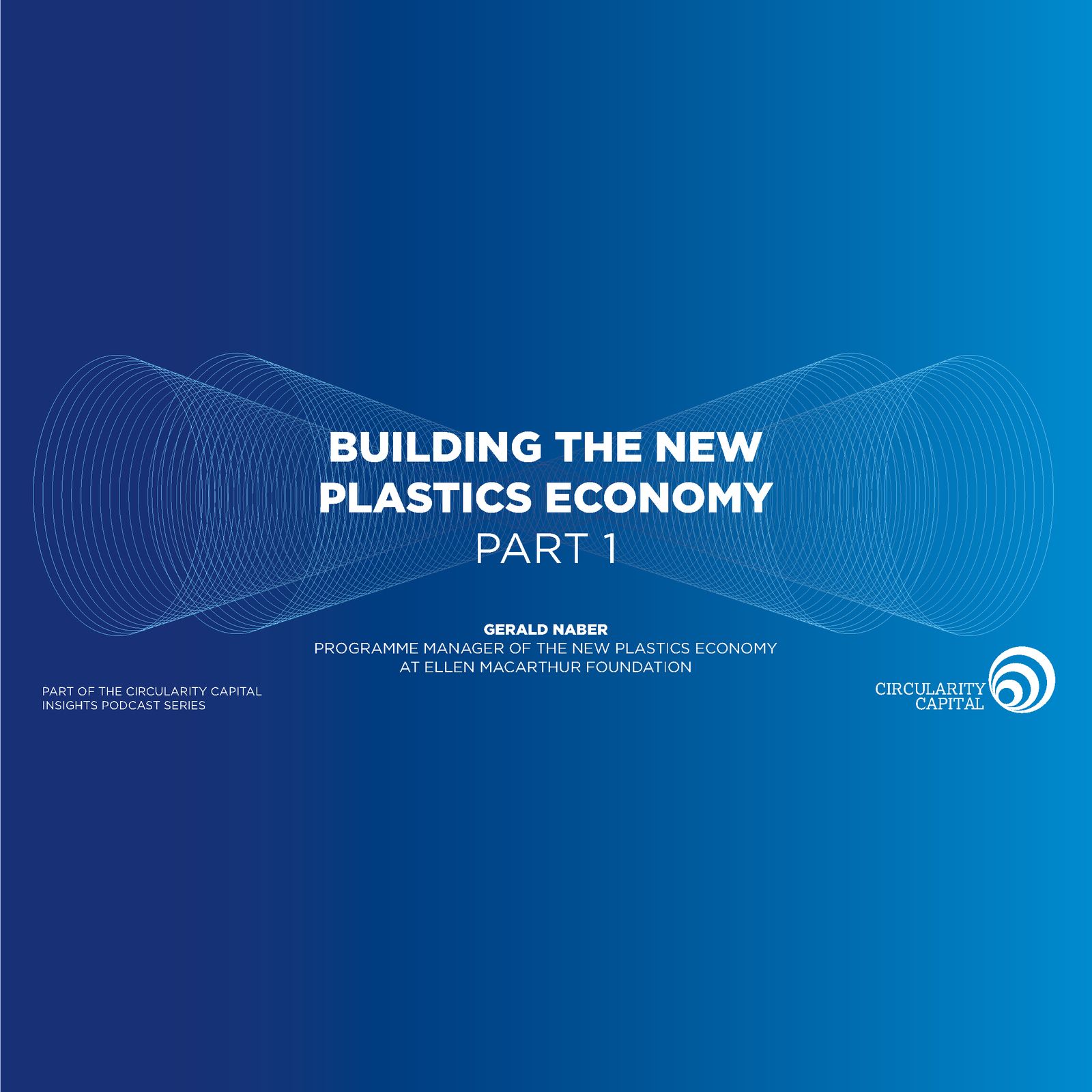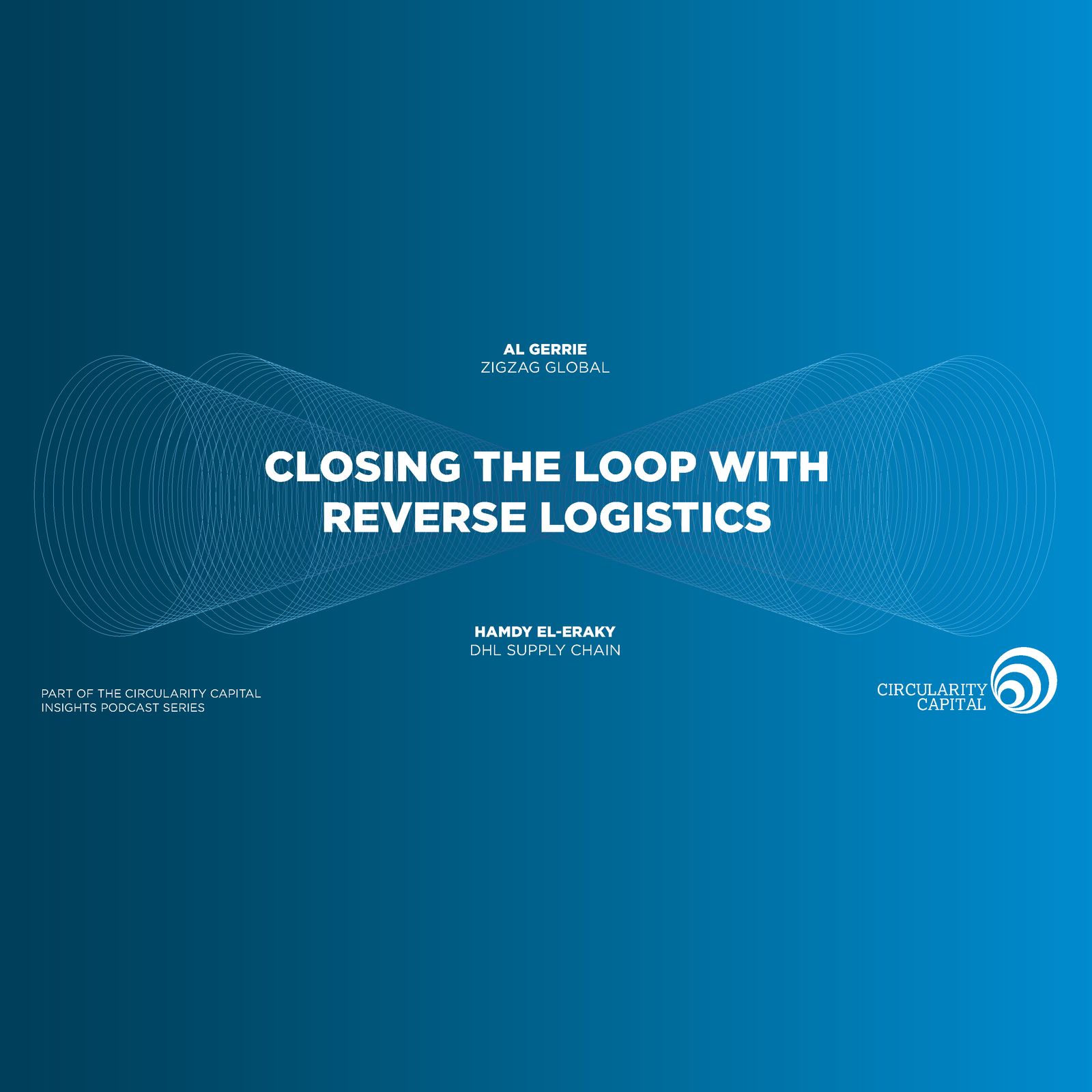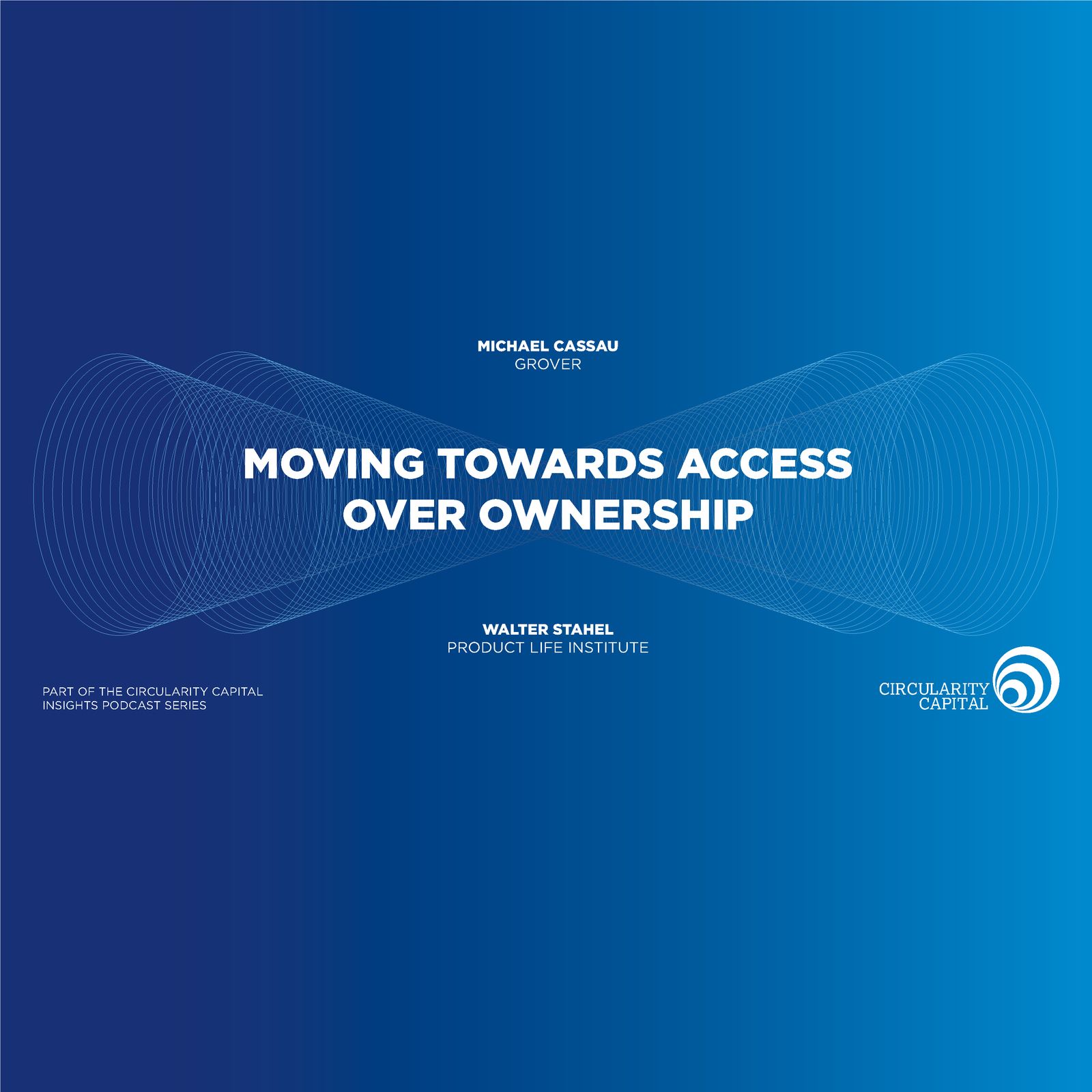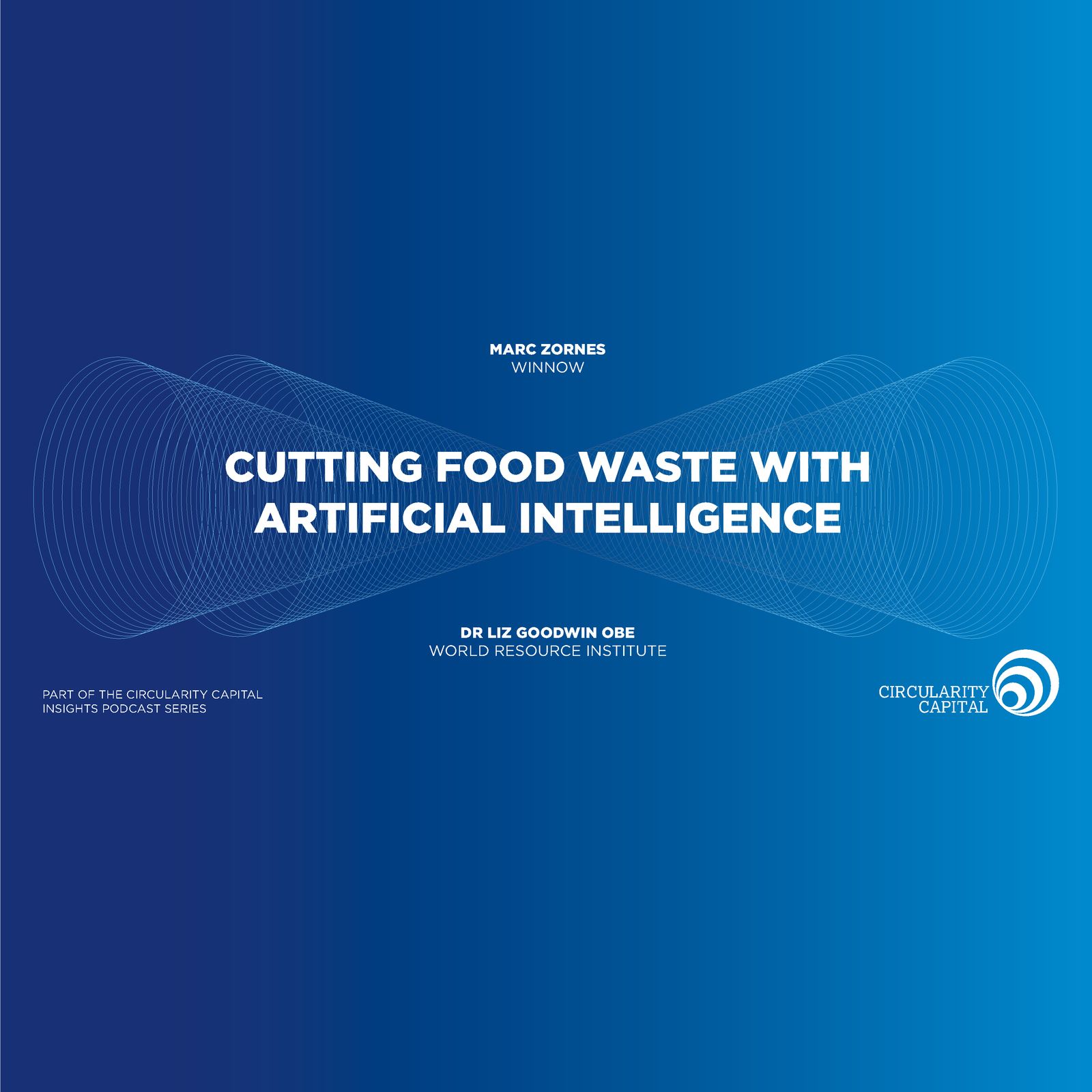Discover Circularity Capital Podcast
Circularity Capital Podcast

Circularity Capital Podcast
Author: Circularity Capital Podcast
Subscribed: 12Played: 144Subscribe
Share
Description
Welcome to the Circularity Capital Podcast, where we explore the innovations and business models that are enabling the transition to a circular economy. You’ll hear from Circularity Capital partners, company executives, and other experts as we investigate how we can leverage capital and insight to support growth in the circular economy.
12 Episodes
Reverse
This episode of Circularity Capital podcast will explore the opportunities, challenges and practical implications of building a new circular plastics economy, drawing from industry experts and practitioners. The podcast will comprise four elements with insight from a range of thought leaders in this space.
In this third of our four-part series Jamie Butterworth speaks with Eelco Smit who is Senior Director of Sustainability at Philips, one of the corporate brands who are really driving the transition towards a circular economy at the moment to understand what is focusing corporate interest in this topic and what are some of the practical challenges in the transition.
Highlights:
“critical to make the change on plastics”
Wherever possible we need to use recycled materials in our products/packaging
Recycled plastics is a new raw material not waste
“collaboration is critical”
Global pandemic has not changed course at Philips
Time Stamp:
[2.50] What is driving corporate interest in this topic
[4.17] Challenges of moving towards a circular plastics economy
[7.30] The role of cost in decision making in putting new products into production
[8.27] How Philips is innovating in the circular economy
[11.08] The benefits of collaboration
For more information go to www.circularitycapital.com
This episode is edited by Podcast Publishing
This episode of Circularity Capital's Insights podcast will explore why the circular economy is increasingly being seen as a powerful framework for regenerative economic growth and how investors are developing specialist strategies to drive value in this space.
In this third of our five-part series Jamie Butterworth speaks with Ian Nolan of Circularity Capital to take an investor’s eye view on this topic by dipping into Circularity Capital’s activities as a specialist investor in the circular economy.
Highlights:
What is Circularity Capital’s investment thesis?
Enable capture of significant improvement in customer engagement, resource productivity and growth
High impact/high return portfolio across European growth stage companies
Why is being a specialist important?
Time Stamp:
[1.15] Ian’s background leading towards Circularity Capital
[3.23] About the Circularity Capital fund
[5.03] We screen form impact and select for fit within our portfolio investment criteria
[6.07] Proven technologies and proven traction
[8.06] We believe there is no trade-off between impact investment and financial returns
This episode of Circularity Capital podcast will explore the opportunities, challenges and practical implications of building a new circular plastics economy, drawing from industry experts and practitioners. The podcast will comprise four elements with insight from a range of thought leaders in this space.
In this final part of our four-part series Andrew Shannon speaks with Jens Holmegaard who is Founder and CEO of Shark Solutions a Circularity Capital portfolio company which focuses on taking an existing waste stream and transferring that into a high performance, high margin polymer.
Highlights:
The problems solved by Shark’s products
“End of life PVB will not end up in nature”
Investment in time and energy is required to make the changes
“It takes someone to believe in the idea and solution”
Consistent quality is key
Time Stamp:
[4.35] Holistic approach to product development
[5.30] Technological property differences
[7.25] Where PVB use began for Shark
[9.00] Adoption by the customer base
[13.07] Consistent feedstock required in the process
For more information go to www.circularitycapital.com
This episode is edited by Podcast Publishing
This episode of Circularity Capital's Insights podcast will explore why the circular economy is increasingly being seen as a powerful framework for regenerative economic growth and how investors are developing specialist strategies to drive value in this space.
In this the final of our five-part series Ian Nolan speaks with Evy Hambro of BlackRock for his insight into investing in the circular economy through its dedicated fund.
Highlights:
Resource efficiency is key
“we have defined the investment universe as being one of 3 categories adopters, beneficiaries or enablers”
Is investing in the circular economy a niche activity at this time?
Adoption, understanding and recognition of the circular economy is all rising at a rapid rate
Time Stamp:
[2.25] Knowledge sharing with the Ellen Macarthur Foundation and fund launch in 2019
[3.08] Areas most attractive to the fund
[4.25] What clients think about trade-offs between sustainable investing and growth of fund
[8.45] Huge value capture is possible
https://www.circularitycapital.com/
https://www.blackrock.com/uk
The episode of Circularity Capital podcast will explore the opportunities, challenges and practical implications of building a new circular plastics economy, drawing from industry experts and practitioners. The podcast will comprise four elements with insight from a range of thought leaders in this space.
In this second of our four-part series Andrew Shannon speaks with David Rakowski, Global Circular Economy and Sustainably co-lead at PA Consulting to understand what is driving business interest in the circular economy and what is the role of innovation in this transition and how this can be accelerated.
Highlights:
“Sustainability and carbon are increasingly important topics for people”
Circular economy is a term being used more regularly and is becoming part of the day-to-day language
Selling the business case is a key challenge but also an enabler
“There is no silver bullet, it is quite a systemic process
A huge focus on packaging as well as the infrastructure required
Time Stamp:
[4.34] The process is consumer driven but with a strong business base
[6.10] Real world challenges for corporate decision making
[10.40] Variables across technologies and geographies
[12.10] Systemic approach and being agile
[17.02] Is a different packaging environment available?
For more information go to www.circularitycapital.com
This episode is edited by Podcast Publishing
This episode of Circularity Capital's Insights podcast will explore why the circular economy is increasingly being seen as a powerful framework for regenerative economic growth and how investors are developing specialist strategies to drive value in this space.
In this second of our five-part series Jamie Butterworth speaks with Wesley Spindler and Peter Lacy of Accenture who share their insight on why investors are interested in the circular economy.
Highlights:
“how do we engage consumers”
“we will consume ‘3 earths’ a year by 2050 in terms of natural resources”
Where we are on the journey to a circular economy
New standards of impact measurement are required
Time Stamp:
[3.09] Pivotal moment for the circular economy
[5.25] Huge value capture on the table
[6.05] How important is finance on this move to a more circular economy
[7.35] We need new standards for measuring circularity metrics
[10.30] New environmental commitment from Accenture – Net Zero by 2025
https://circularitycapital.com/
https://www.accenture.com/gb-en
Investing in the Circular Economy
This episode of Circularity Capital's Insights podcast will explore why the circular economy is increasingly being seen as a powerful framework for regenerative economic growth and how investors are developing specialist strategies to drive value in this space.
In this fourth of our five-part series Jamie Butterworth speaks with Mireille Kielemoes who is the Managing Director Private Equity at BNP Paribas Fortis to explore her thoughts on investing in this space.
Highlights:
Offering PE solutions through a company’s lifecycle
Belgian angle is important in our investment strategy
“Sustainable bank doing sustainable banking”
Sustainability is a revolution comparable to the digital revolution
Time Stamp:
[1.25] BNP focus and investment mandate
[2.00] Geographic and sector focuses
[3.25] Solutions via 4 development teams for main social and environmental threats
[5.00] Sustainability has gone mainstream
[5.55] BNP wants to be a leader in sustainable finance
https://companies.bnpparibasfortis.be/
https://circularitycapital.com/
Investing in the Circular Economy
This episode of Circularity Capital's Insights podcast will explore why the circular economy is increasingly being seen as a powerful framework for regenerative economic growth and how investors are developing specialist strategies to drive value in this space.
In this first of our five-part series Jamie Butterworth speaks with Antonia Gawel from the World Economic Forum PACE Initiative to understand what is driving governments and corporations and how investors look towards the circular economy as a framework for future growth.
Highlights:
"huge economic opportunity to be had"
“enabling technologies are much more available"
The circular economy becomes a means to an end to manage resources
The financial sector needs to treat risk and its perceptions differently
Time Stamp:
[1.15] What is driving the move towards looking at the circular economy as a framework for growth
[2.35] Natural resources and climate change
[4.25] Consumers catching up to climate/waste impacts and are demanding a different approach
[5.46] What is driving governments, corporations and investors to look towards the circular economy
[8.37] What is the role of finance in the transition to a more circular economy
Useful Links:
https://www.weforum.org/projects/circular-economy
For more information go to www.circularitycapital.com
This episode is edited by Podcast Publishing
This episode of the Circularity Capital podcast will explore the opportunities, challenges and practical implications of building a new circular plastics economy, drawing from industry experts and practitioners. The podcast will comprise four elements with insight from a range of thought leaders in this space.
In this first of our four-part series Jamie Butterworth speaks with Gerald Naber, Program Manager of The Ellen MacArthur Foundation’s new plastics economy initiative to understand what is driving the need for a new plastics economy and how the circular economy can provide a framework for rethinking in this regard.
Highlights:
“Plastics is a victim of its own success”
“We got addicted to using plastics”
Rethinking reuse of plastic products in, for example, packaging and take away coffee cups
How do we ensure there is enough infrastructure to recycle?
“Is plastic packaging even needed in the first place”
Time Stamp:
[2.50] Gerald Naber and his role at EMF
[3.55] Why we need a new type of plastics economy
[6.31] Linear vs Circular to rethink a new plastics economy
[10.57] Idea of technical nutrients and bio nutrients within the economy and role they play in the new plastics economy
[13.21] Companies using innovations to move away from plastics – how much opportunity this provides
[15.55] Role of EMF
Useful Links:
Ellen MacArthur Foundation
For more information go to www.circularitycapital.com
This episode is edited by Podcast Publishing
In this episode, we’ll be exploring one of the key challenges in any functioning circular economy: how to recover products and materials after one use cycle to enable their ultimate redeployment.
Jamie Butterworth speaks with Hamdy El-Eraky, Global Circular Economy Project Manager at DHL Supply Chain.
In part 2, Andrew Shanon speaks with Al Gerrie, CEO and founder of ZigZag Global. ZigZag Global is a Saas platform that helps retailers manage return stock for resale refurbishment or redistribution
Highlights:
Why DHL Supply Chain is interested in the circular economy
Example of how cannibalizing products for reuse can be more sustainable
"It's fundamental to get the product back so you can use it again for another consumer cycle and this is optimized if you are designing for circularity, you're designing the product and the materials to be used for multiple life cycles, so it's integral to a circular economy to have a very efficient reverse logistics loop."
"Returns are part and parcel of doing business and buying online."
How Arcadia reduced their customer queries by 40% after implementing ZigZag
Time Stamp:
[01:49] Hamdy's role at DHL Supply Chain and why DHL finds circular economy of interest
[07:40] Omni-channel logistics
[12:23] Inner loops of circular economy
[14:10] Clients of ZigZag and their USP
[17:58] Example of how ZigZag dramatically reduced the impact of a retailer
[21:19] How ZigZag offer works for customers
[23:33] What is next for logistics
Useful links:
DHL Supply Chain
ZigZag Global
For more information go to www.circularitycapital.com
This episode is produced by Woon Tan of Podcast Publishing
In this episode, we will explore how consumers are increasingly choosing access over ownership and how this is disrupting the incumbent retail landscape and unlocking new sources of value.
Host Jamie Butterworth speaks with Walter Stahel, widely recognised as one of the key thinkers of the circular economy and the founding father of the Performance economy
In part 2 of the podcast Circularity Capital Partner David Mowat speaks with Michael Cassau, founder of Grover, one of Circularity Capital’s portfolio companies who provide their customers with a flexible ownership model for consumer electronics.
Highlights:
The principles of access over ownership
Examples of circular economy business models within B2B and B2C contexts
The inspiration behind Grover and how it provides customers access over ownership
Time Stamp:
[00:57] Why write the book Circular Economy, A User's Guide
[04:18] The 6th challenge of the circular economy
[09:15] David on why consumers are engaging in access over ownership
[14:53] What led to the founding of Grover
[18:45] Reuse and resale pattern on Grover
[20:10] Why are people moving away from owning products
Useful links:
Circular Economy, A User’s Guide
Product Life Institute
Grover
For more information go to www.circularitycapital.com
This episode is produced by Woon Tan of Podcast Publishing
In this first episode of the Circularity Capital Podcast, host Jamie Butterworth spoke with Dr Liz Goodwin OBE, Senior Fellow and Director of Food Waste and Loss of the World Resource Institute. Liz is behind the Champion 12.3 Initiative which aims to half global food waste by 2030 and Chair of London Waste And Recycling Board which is tasked in supporting London’s goal of becoming carbon neutral by 2050. Liz helps us understand the context of the global food waste challenge.
Circularity Capital Partner Ian Nolan sat down with Marc Zornes, CEO and cofounder of Winnow, an AI based solution which cuts commercial food waste in half through data analysis and object recognition. In this conversation, Marc shares how AI is being used by Winnow to reach their 5 year goal of $1billion of savings for the industry.
Highlights:
Food waste in terms of emissions, water and land use
Why it is important to solve the problem of food waste
Difference in food waste in emerging economy and advanced economy
The current context of data enabling within circular economy
How did we realise we were wasting up to one third of all the food that we produce
“We estimate that in the hospitality industry, the issue of food waste, just in the cost of food is 100-billion-dollar problem.” - Marc Zornes
How AI plays a part in Winnow’s solution
Why there is a market opportunity to solve food waste in large commercial kitchens
Time stamp:
[01:26] Liz on how big is the problem of food waste
[03:24] The flaws in the system that got us to this point
[05:00] The business case for solving food waste
[07:05] Liz on being a part of Champions 1.2.3, advocating the UN SDGs
[08:37] Ian Nolan on examples of the importance of data analytics in circular economy
[12:58] Food waste in developing countries
[17:22] How Winnow is resulting in more efficient kitchens
[19:30] How important is AI for Winnow?
[22:40] Marc’s vision of where he sees Winnow
Useful links:
World Resources Institute
Champions 12.3
Winnow
For more information go to www.circularitycapital.com
This episode is produced by Woon Tan of Podcast Publishing


